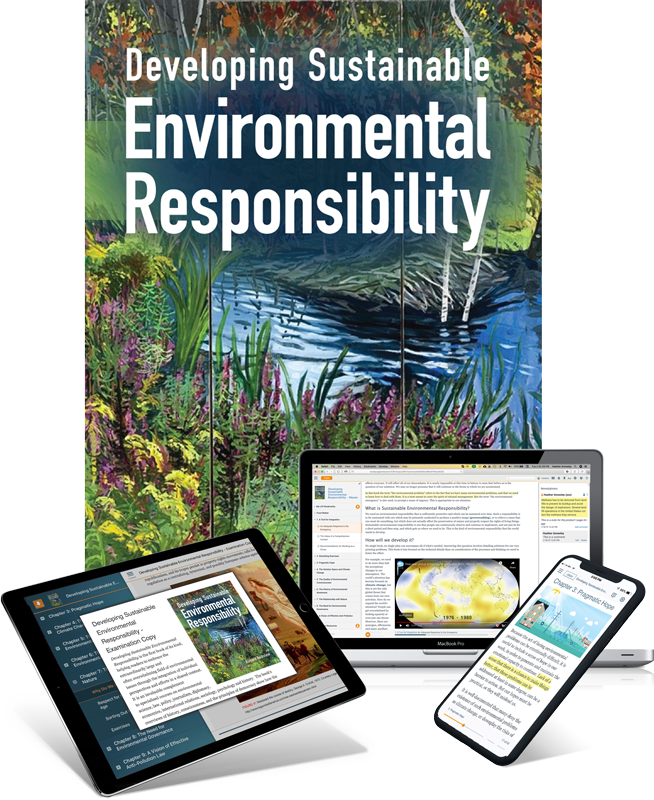Sustainability Policy and Events
Hygeia, goddess of good health, cleanliness. 100 BCE - 100 CE. Wellcome Images. Science Museum, London. (Creative Commons Attribution license 4.0 International).
Virality can refer to the rapid spread between people of a microorganism - or of information. One kind is dominating our attention today: the physical transference of disease. But another - the electronic spread of harmful information - should also be addressed. Today we read that rightwing haters are vilifying lead scientific defender Anthony Fauci[1] for failing to sycophantically echo his president’s false assurances about the coronavirus. Conservative commentators such as Rush Limbaugh (reaching an estimated 25 million listeners on radio) and Sean Hannity (most-watched host on cable news) labeled the advice of public health experts a hoax, a plot by Democrats to injure Trump. The spread of this noxious idea slowed the adoption of policies to stop the transmission of disease. Claire Felten and Arthur Nelson wrote for the website of the Center for Strategic and International Studies in 2019 that:
Online misinformation may be new, but the way information spreads across online networks is remarkably similar to the way disease diffuses across people-to-people networks.[2]
Viral diseases and mis- and disinformation are not classical environmental issues, but like pollution they are harmful invasions of our common space, bodies and minds. These harms are also interlinked in many ways. For example, increased air pollution reduces lung functioning, increasing the likelihood that the coronavirus will be deadly. Rightwing myths that government employees loyal to their statutory mission are part of a Deep State subverting our freedoms, or that environmental rules are bad for business, have fostered support for the Administration’s dismantling of agency programs, including the pandemic prevention team Obama created[3], and the EPA’s efforts to clean up our air, water and land. We need intelligent governance to protect us and that requires access by the public to accurate information so that the public can have real representative government that works for the common good – the original intent of the founders of our republic.
Internet companies have made some moves to institute controls on information damaging to public health, for example deleting false statements from Brazil’s president.[4] But these controls are being developed by private companies behind closed doors and will be mitigated by their commercial interest. At the 13th Internet Governance Forum attendees agreed that “self-regulation by the Internet platform cannot be a solution because it is dependent upon the platform’s business purpose (namely profit). On the other hand, stronger regulation by governments often is, in practice, a means to repress freedom of expression and prevent political opponents from critiquing the establishment under the pretext of fighting fake news.“[5] But a functioning democracy could craft controls that accomplish needed limits while respecting free speech rights. More public attention to this issue could prompt this.
Online misinformation may be new, but the way information spreads across online networks is remarkably similar to the way disease diffuses across people-to-people networks.[2]
Viral diseases and mis- and disinformation are not classical environmental issues, but like pollution they are harmful invasions of our common space, bodies and minds. These harms are also interlinked in many ways. For example, increased air pollution reduces lung functioning, increasing the likelihood that the coronavirus will be deadly. Rightwing myths that government employees loyal to their statutory mission are part of a Deep State subverting our freedoms, or that environmental rules are bad for business, have fostered support for the Administration’s dismantling of agency programs, including the pandemic prevention team Obama created[3], and the EPA’s efforts to clean up our air, water and land. We need intelligent governance to protect us and that requires access by the public to accurate information so that the public can have real representative government that works for the common good – the original intent of the founders of our republic.
Internet companies have made some moves to institute controls on information damaging to public health, for example deleting false statements from Brazil’s president.[4] But these controls are being developed by private companies behind closed doors and will be mitigated by their commercial interest. At the 13th Internet Governance Forum attendees agreed that “self-regulation by the Internet platform cannot be a solution because it is dependent upon the platform’s business purpose (namely profit). On the other hand, stronger regulation by governments often is, in practice, a means to repress freedom of expression and prevent political opponents from critiquing the establishment under the pretext of fighting fake news.“[5] But a functioning democracy could craft controls that accomplish needed limits while respecting free speech rights. More public attention to this issue could prompt this.
Intervention need not be censorship but can debunk and educate, and Felton and Nelson suggest “providing users with multiple sources of information and letting them come to their own conclusions…Social media companies also could contribute by adjusting their algorithms…to lessen the effect of echo chambers.” Targeted interventions to superspreaders of misinformation are analogous to contact tracing to stop the spread of disease. And censorship certainly seems appropriate for outright harmful disinformation, such as banning Russian bots that seek to influence our election process,[6] or when NY AG Letitia James sends a cease-and-desist letter to Alex Jones when he alleges the toothpaste he is selling will stop the coronavirus.[7] Whereas free speech is a bedrock right in a free society, and many would protect even offensive speech that pollutes our national discourse in order to honor that principle, arguments for limits on harmful speech can be upheld in order to protect other rights.
While we do have government scientists (not nearly enough, because of cuts over many years to the budgets of public health agencies)[8] at work on controlling COVID-19, we do not have government specialists managing the spread of misinformation.[9] Harvard professor Jonathan Zittrain warned in the Atlantic[10] in 2017 that we cannot leave this matter to the market. The platforms are opaque and we don’t learn if something we see is “representative of sentiment at large, or for that matter of anything, including expert consensus. But expert outsiders can still game the system to ensure disproportionate attention to the propaganda they want to inject into public discourse.” (Emphasis added).
As with the protection of the natural resources on which we depend for life, and our own health and freedom from toxic impositions, we need government action. As with environmental progress, we cannot place our trust in profit-making companies to act in our interest. Governmental action may never come about unless we demand it, and if we fail to, the spread of false information will damage our ability to respond to all threats to our general welfare. Since the elimination in 1987 of the Fairness Doctrine, the Federal Communications Commission cannot require broadcasters to cover issues of public interest, nor to air contrasting views. In a 2005 article, “The Fairness Doctrine: How We Lost it and Why We Need It Back,”[11] FAIR[12] contributing writer Steve Rendall wrote that the idea of the Doctrine was that “as trustees of a scarce public resource, licensees accept certain public interest obligations in exchange for the exclusive use of limited public airwaves.” He recalled the words of Representative Luther Johnson in the debate on the 1927 Radio Act: “American thought and American politics will be largely at the mercy of those who operate these stations, for publicity is the most powerful weapon that can be wielded in a republic.” He also reminded us of the Supreme Court’s words in the 1969 case Red Lion Broadcasting v FCC[13], upholding the Doctrine:
It is the purpose of the First Amendment to preserve an uninhibited marketplace of ideas in which truth will ultimately prevail, rather than to countenance monopolization of that market, whether it be by the government itself or a private licensee. It is the right of the public to receive suitable access to social, political, aesthetic, moral and other ideas and experiences which is crucial here. That right may not constitutionally be abridged either by Congress or by the FCC.
The Doctrine didn’t and wouldn’t prevent talk shows such as Rush Limbaugh’s, but it would prevent a station from only broadcasting right wing views and excluding others. Since the demise of the rule, conservative views have vastly expanded in the public conversation and come to dominate the airways in many parts of the country. The imperative to reclaim radio and television airwaves for the First Amendment and ensure a balance – the ability to clear the air - also applies to internet platforms.
The promise of the internet is in its ability to release the potential for good that can come from connecting us, and that includes such things as replacing the need to commute, flexible workplaces, the greater exchange of ideas and information of common value, social connection, and the overcoming of ignorance. It could enable cooperative efforts and joint decision-making that helps societies effectively care for themselves and responsibly co-exist on this fragile earth. Yet it can also be used to control us. Reviewing Shoshona Zuboff’s The Age of Surveillance Capitalism: The Fight for a Human Future at the New Frontier of Power, Columbia Law Professor Tim Wu writes that surveillance to gain private information to use for profit must now be “counted as among the most significant parts of the economy.” Zuboff highlights concerns about its use by commercial entities, while Wu focuses alarm on the example of China, which is instituting a “social credit system to keep a running tally of each citizen’s reputation…it was reported in 2019 that, owing to ‘untrustworthy’ conduct’, 26.82 million Chinese citizens were barred from buying airplane tickets and 5.96 million from traveling on China’s high-speed rail network.”[14] Better known is the extreme monitoring and control imposed on the Uighurs in Xinjiang.
In order to regain our right and need for reliable information in order to function as a healthy democracy, and remain free, we need government action. As Wu writes, with legislation we can “stop the gratuitous surveillance and the reckless accumulation of personalized data.” We can “allow only the collection of data necessary to the task at hand: an app designed to help you mix cocktails would not, for example, be allowed to collect location data.”
It is damaging to our wellbeing to continue to allow a dominance of any one view and not counter the proliferation of harmful false information, and we must not continue to let companies use our private information for profit beyond what pertains to the specific uses we purchase. These developments impede humanity’s ability to be responsible for the biosphere and its members. The arrival of the pandemic is showing us that we cannot put off government for the people any longer.
Perhaps people will finally recognize the primacy of public health as a result of this emergency. We are all not just interconnected, but intimately so. Our relationships involve an exchange of entities and ideas that enter our bodies and minds. No man is an island, but as Jefferson Airplane told us during the sixties, “he is a peninsula”. Our enforced isolation from each other may induce a yearning for relationship. We are now connecting, if at all, through the internet.
But sometimes, when you are talking to your family, or working online, a box appears on your screen: Connection Unstable. What can you do? (Maybe turn off your camera to reduce the needed bandwidth). We are at the mercy of something that others control. This should not be the position of a free people. Who controls the medium through which we now connect? We should. The internet was created by government agencies through taxpayer dollars. But if it profits shareholders to ignore values individuals hold dear, expect violations. Environmental law is an assertion that we should control the air that we breathe and the water we drink. Pollution is a lesson: we must not cede control of our common property.
There is every reason to think that we can devise means of ensuring that our relationships – physical and virtual – can work to make us safer and happier. Perhaps the trauma of COVID-19 will arouse enough people from the comfortable slumber of believing, falsely, that things are being taken care of by specialists. Perhaps people in shut-down industries will use this time to think about how to operate with fewer impacts. Perhaps more people will come to care about the less fortunate – those kids, for example, in homeless shelters, who can’t access their school’s lessons on the internet, and those living day to day, who can’t pay any bills. What if we ended the shut down with increased recognition that it is our health and happiness that is our wealth, and remember that this is our government, made to work for our needs? Maybe we will remember that we need to act as if we own it.
[1] Director, since 1984, of the National Institute of Allergy and Infectious Diseases, now receiving personal protection due to online threats.
[2] https://www.csis.org/countering-misinformation-lessons-public-health
[3] The National Security Council Directorate for Global Health Security and Biodefense, disbanded in 2018.
[4] Twitter, Facebook and Instagram deleted posts in which Bolsanaro “questioned social distancing measures, deeming the posts in violation of guidelines prohibiting content that endangers public health”. “Bolsanaro, Isolated and Defiant, Dismisses Coronavirus Threat to Brazil”, New York Times, April 1, 2020 .
[5] https://dig.watch/sessions/countering-misinformation-online-policies-and-solutions
[6] https://www.thedailybeast.com/banning-bots-punishing-troll-farmers-and-hardening-voting-machines-heres-how-to-stop-russia-from-wrecking-election-2018
[7] https://nypost.com/2020/03/12/new-york-attorney-general-tells-alex-jones-to-stop-selling-bogus-coronavirus-cures/
[8] According to researchers at City University of New York School of Public Health “By 2014, public health funding had plummeted 17 percent from 2002 levels (a 9.3 percent drop since 2008)…a $40.2 billion loss of funds.” https://www.fredhutch.org/en/news/center-news/2015/11/Public-health-funding-drop-hurts-prevention.html
[9] Clint Watts of the Foreign Policy Research Institute and former counterterrorism expert at the FBI, wrote in the Daily Beast in February, 2018 that “To date, no consolidated, coordinated plan for responding to Russian influence has been revealed to the public. All reporting suggests the executive branch remains frozen, lacking direction from administration leadership and a president who remains silent on Russia’s attack on America – while shouting about how unfair the investigation into that attack has been.” https://www.thedailybeast.com/banning-bots-punishing-troll-farmers-and-hardening-voting-machines-heres-how-to-stop-russia-from-wrecking-election-2018
[10] “The Age of Misinformation”, May 3, 2017.
[11] https://fair.org/extra/the-fairness-doctrine/
[12] Fairness and Accuracy in Reporting.
[13] 395 U.S. 367.
[14] “Bigger Brother”, The New York Review of Books, April 9, 2020.

 RSS Feed
RSS Feed

